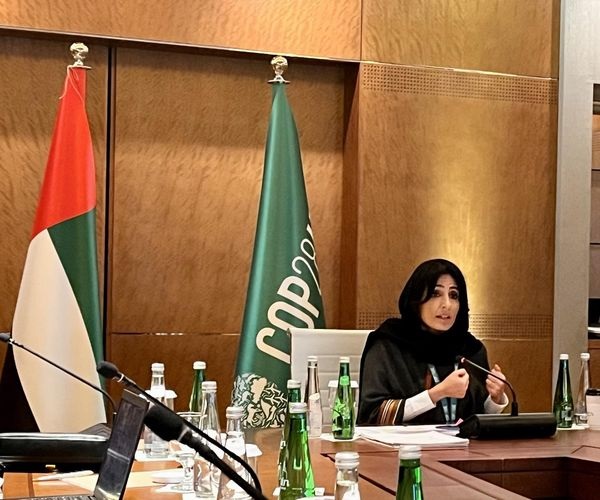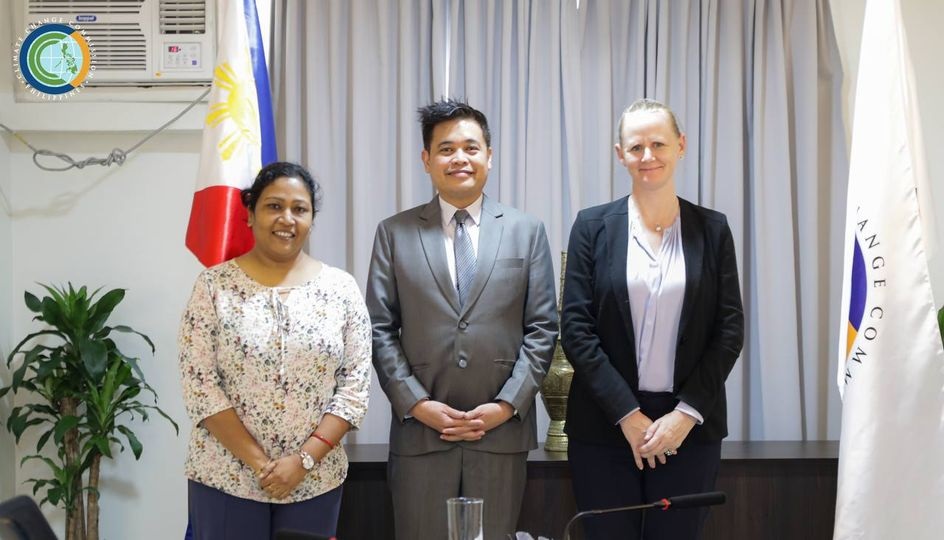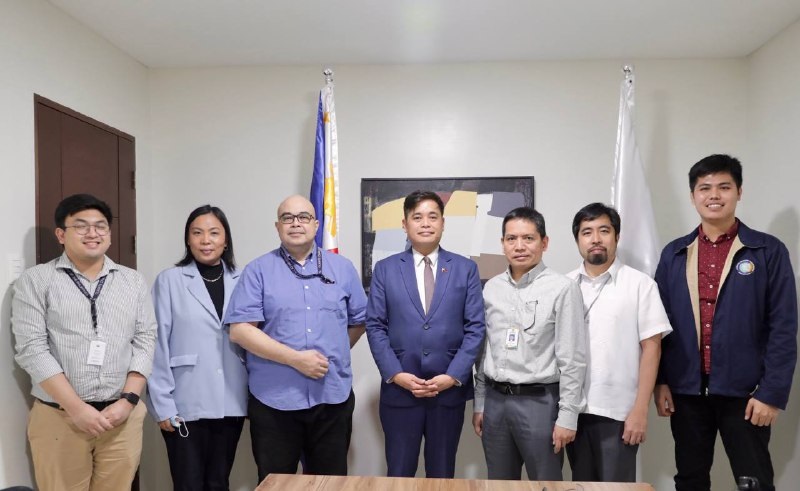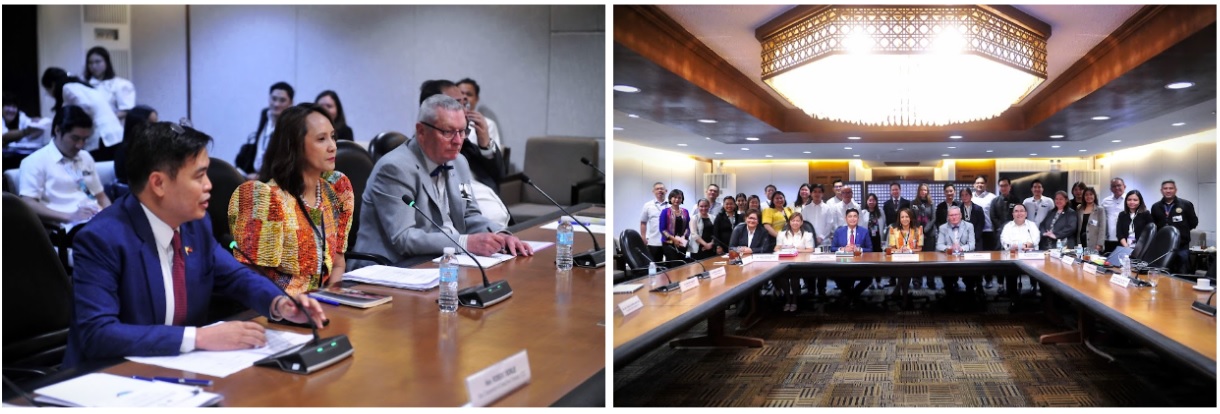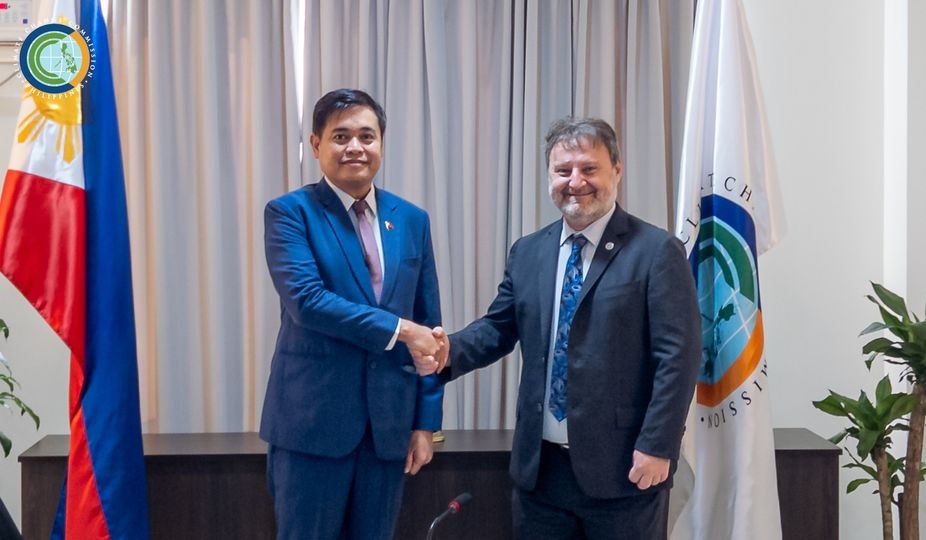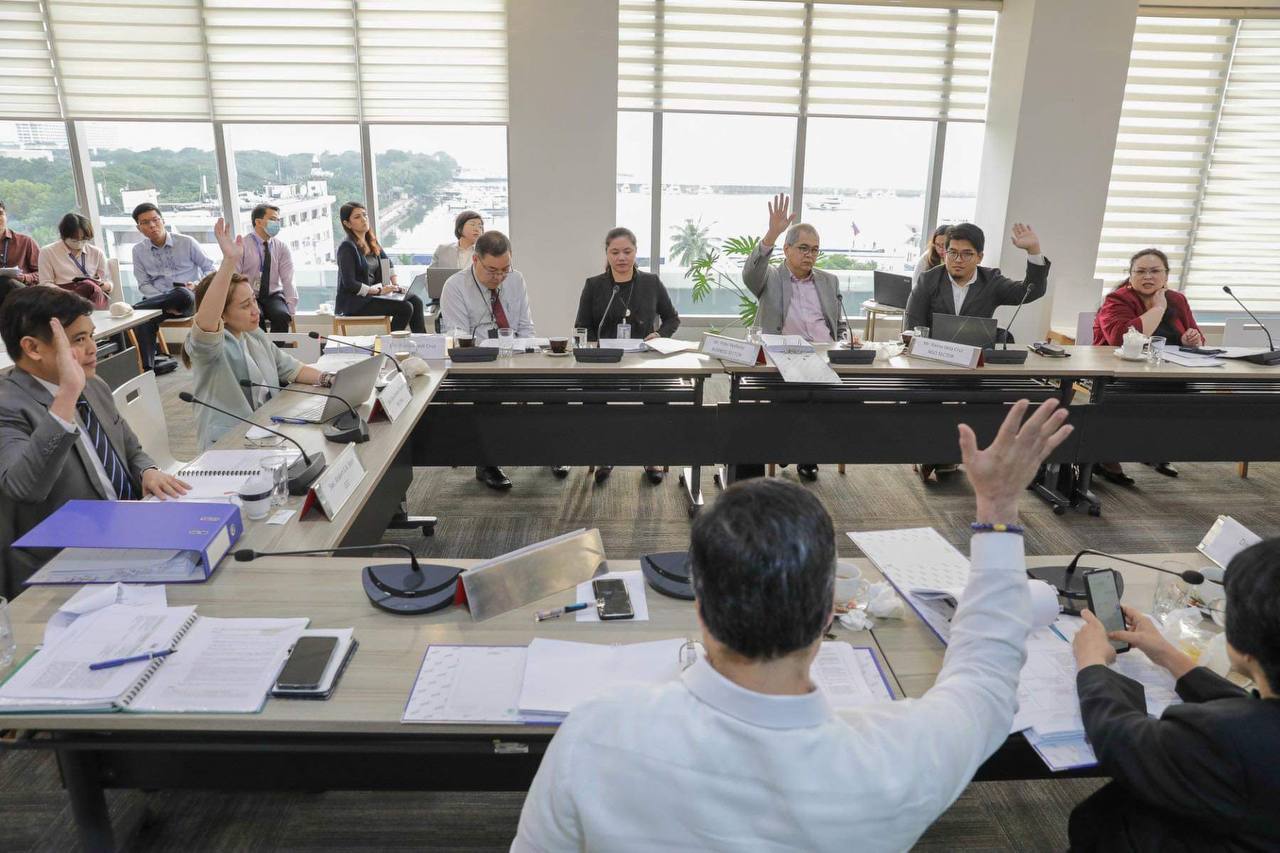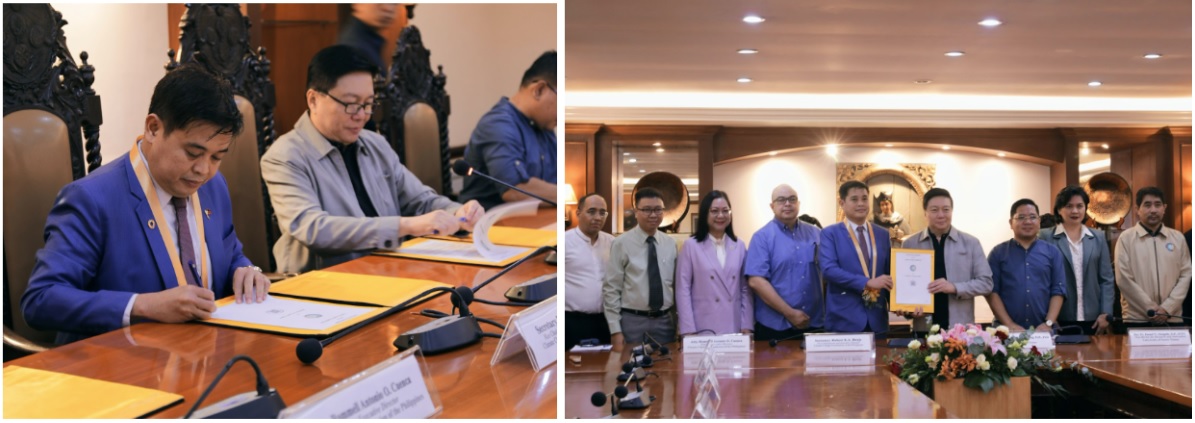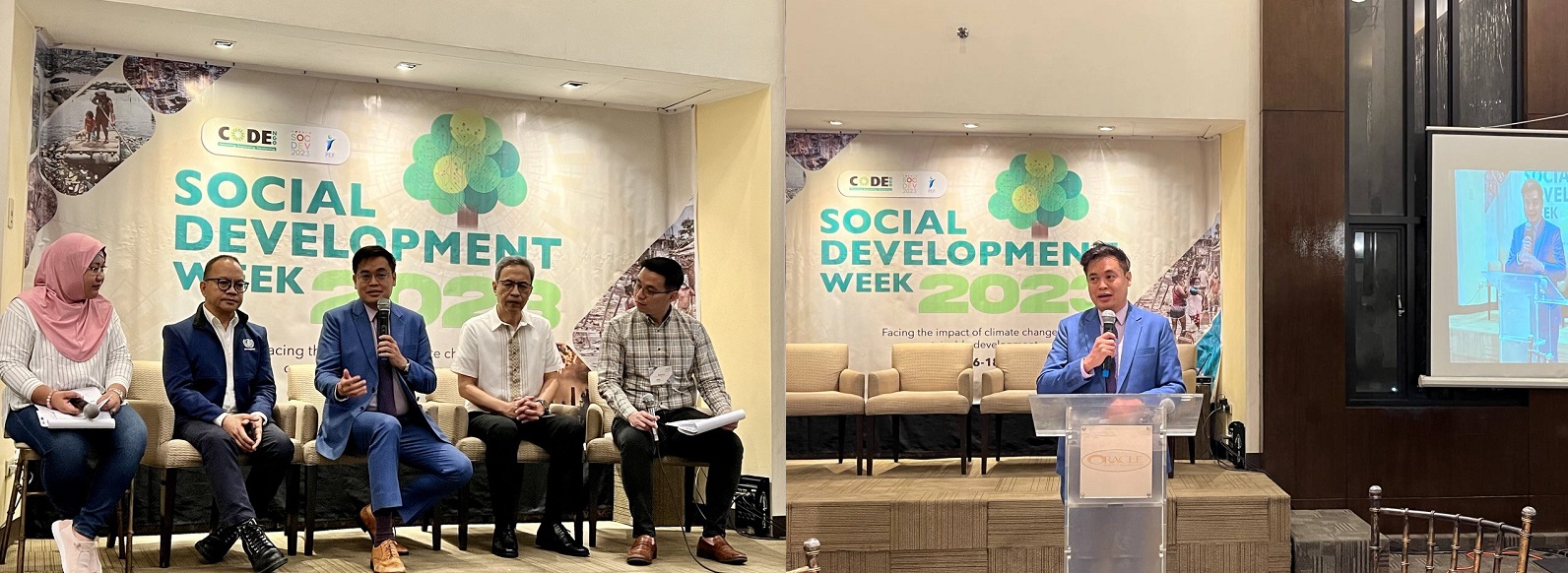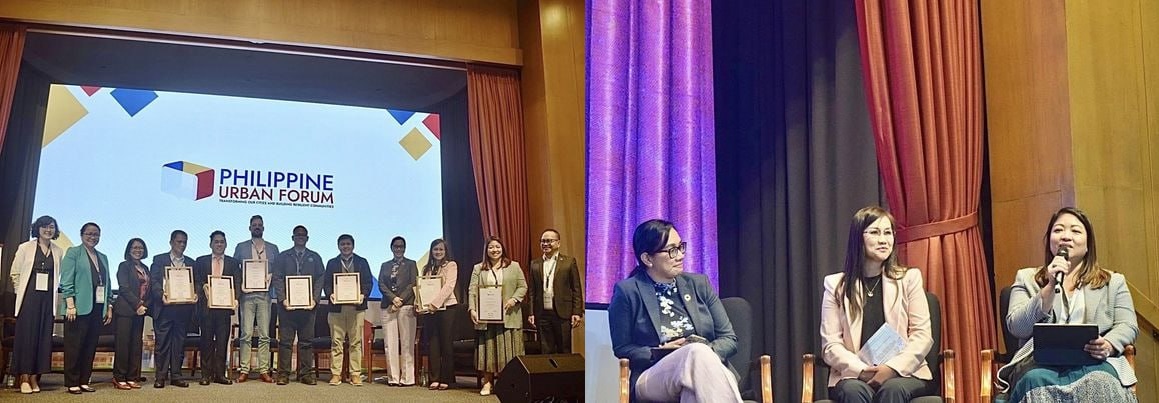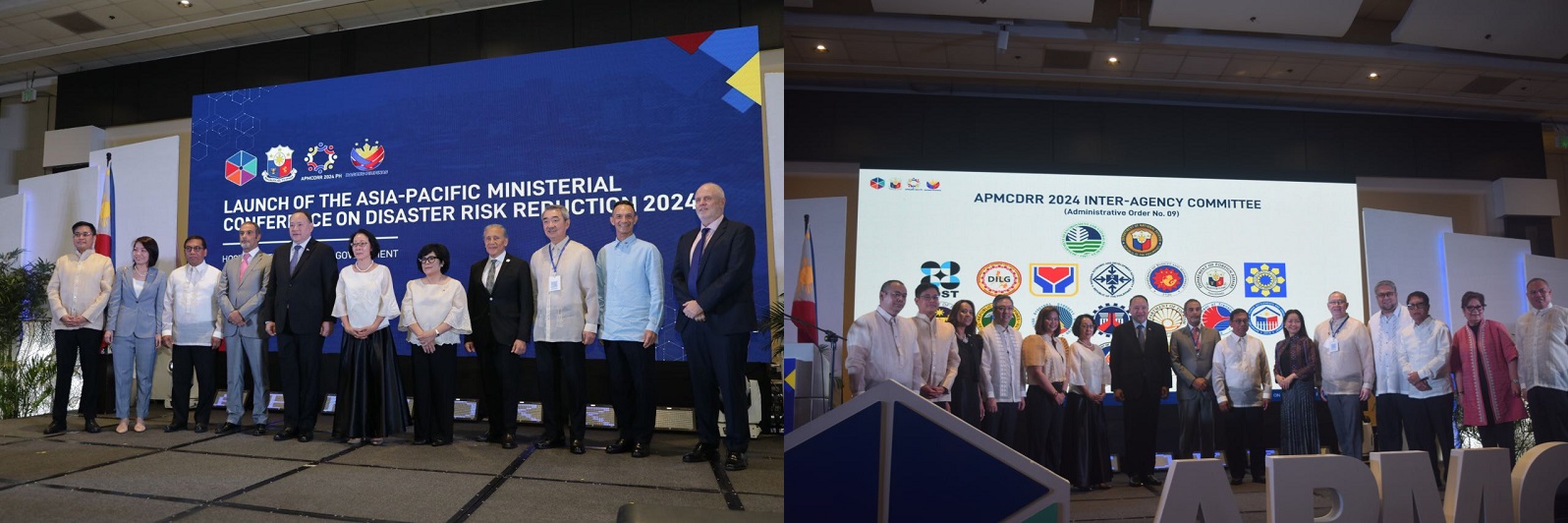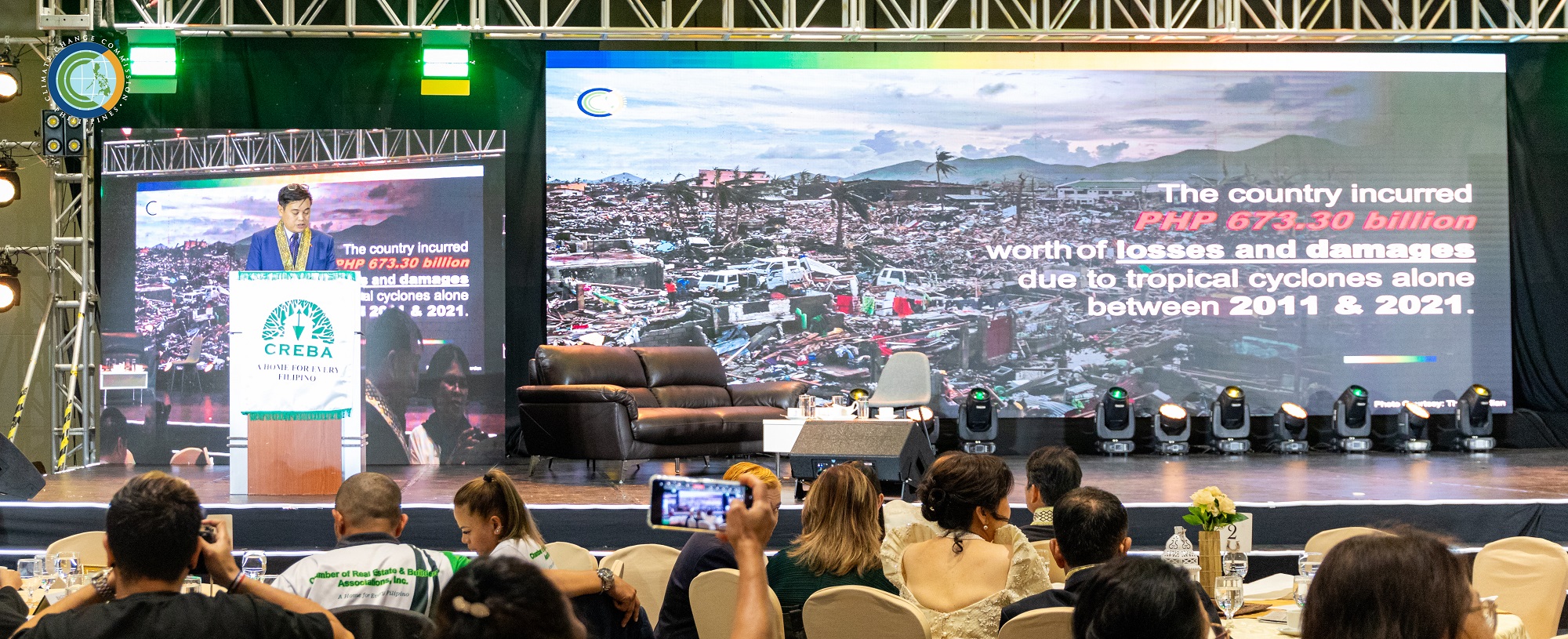The Awardees of the Philippine Resilience Awards for Women together with the members of the Selection Committee.
MANILA, 12 October 2023 — The Climate Change Commission (CCC), in collaboration with the Office of Senator Loren Legarda, Philippine Commission on Women, Carlos P. Romulo Foundation, National Resilience Council, ARISE Philippines, WIN DRR Philippines, and SM Prime Holdings, Inc., honored exceptional women leaders during the Philippine Resilience Awards for Women - Awarding Ceremony held today.
The event recognized the following awardees, each hailing from diverse backgrounds and demonstrating commitment to building climate and disaster-resilient communities:
1. Hon. Maria Josefina Belmonte - Mayor of Quezon City, for championing resilient food systems and sustainable livelihood through the City’s Community-based Urban Farming Program.
2. Ms. Alicia Ilaga - Director of the Climate Resilient Agriculture Office of the Department of Agriculture, for her commitment to community-based resilience in vulnerable farming communities through the Adaptation and Mitigation Initiative in Agriculture (AMIA) Program.
3. Hon. Maria Catalina Cabral - Undersecretary of the Department of Public Works and Highways (DPWH), for championing critical infrastructure resilience in the implementation of DPWH infrastructure projects.
4. Dr. Shirley Agrupis - University President of Mariano Marcos State University, for her dedication to green technological innovations, including enhancing sustainable local bioethanol production using nipa sap.
5. Ms. Maria Vicente Jalandoni - President of the Base Bahay Foundation, Inc., for her efforts in promoting sustainable, resilient, and ecological housing through Cement-Bamboo Frame Technology (CBFT).
6. Dr. Urduja Alvarado - University President of Cagayan State University, for her community-based resilience initiatives, focusing on ecological development and empowerment of mangrove communities in Gonzaga, Cagayan.
7. Dr. Joy Mirasol - University President of Bukidnon State University, for championing bio-cultural diversity conservation and resilience through the strengthened and empowered management of Mindanao Protected Areas.
8. Ms. Nida Collado - Farmer and President of the Macatumbalen Community Based Forest and Coastal Management Association, for her leadership in community-based sustainable forest management and environmental conservation in San Vicente, Palawan.
9. Sr. Arcelita Sarnillo - Hospital Administrator of St. Paul's Hospital of Iloilo, Inc., for recognizing the link between human health and environmental conditions, championing green, sustainable, and climate-resilient healthcare through the Green and Healthy Hospital Program.
10. Ms. Mila Bogñabal - President of Joroan Farmers and Fisherfolks Association, for her efforts in promoting resilient food systems and sustainable livelihood in Joroan Tiwi, Albay, through the implementation of climate-resilient agricultural practices.
Additionally, the CCC provided the Accelerator Fund for Grassroots Organizations to Ms. Collado and Ms. Bogñalbal, supporting their projects focused on teaching sustainable practices, enhancing disaster preparedness, and promoting eco-friendly technologies at the community level.
These exceptional women leaders are a testament to the power of resilience, dedication, and innovation in addressing the challenges posed by climate change and disasters.
"As environmental warriors, your influence and dedication will drive positive change, foster collaboration, and build a resilient world for future generations," said Senate President Pro Tempore Loren Legarda.
"It is your role to give Filipinos hope that together, we can work toward a safer planet, free from the devastating impacts of natural disasters and climate change," she added.
CCC Vice Chairperson and Executive Director Robert E.A. Borje emphasized, "These women exemplify the spirit of resilience that our nation needs. Their actions echo a powerful message – that the collective efforts of individuals can indeed transform communities and safeguard our environment."
CCC Commissioner Rachel Anne S. Herrera added, "Today’s awardees showcase the impactful intersection of dedication and innovation. We celebrate their achievements and are inspired by their commitment."
Established in 2013 by Senator Loren Legarda, the Philippine Resilience Awards have been an inspiration for local leaders striving to build climate and disaster-resilient communities. Today’s ceremony highlighted the remarkable initiatives and projects undertaken by outstanding women leaders in the field of resilience.
For more information on the CCC’s climate mainstreaming activities, visit https://climate.gov.ph and https://facebook.com/cccphl.
October 12, 2023 Thursday


